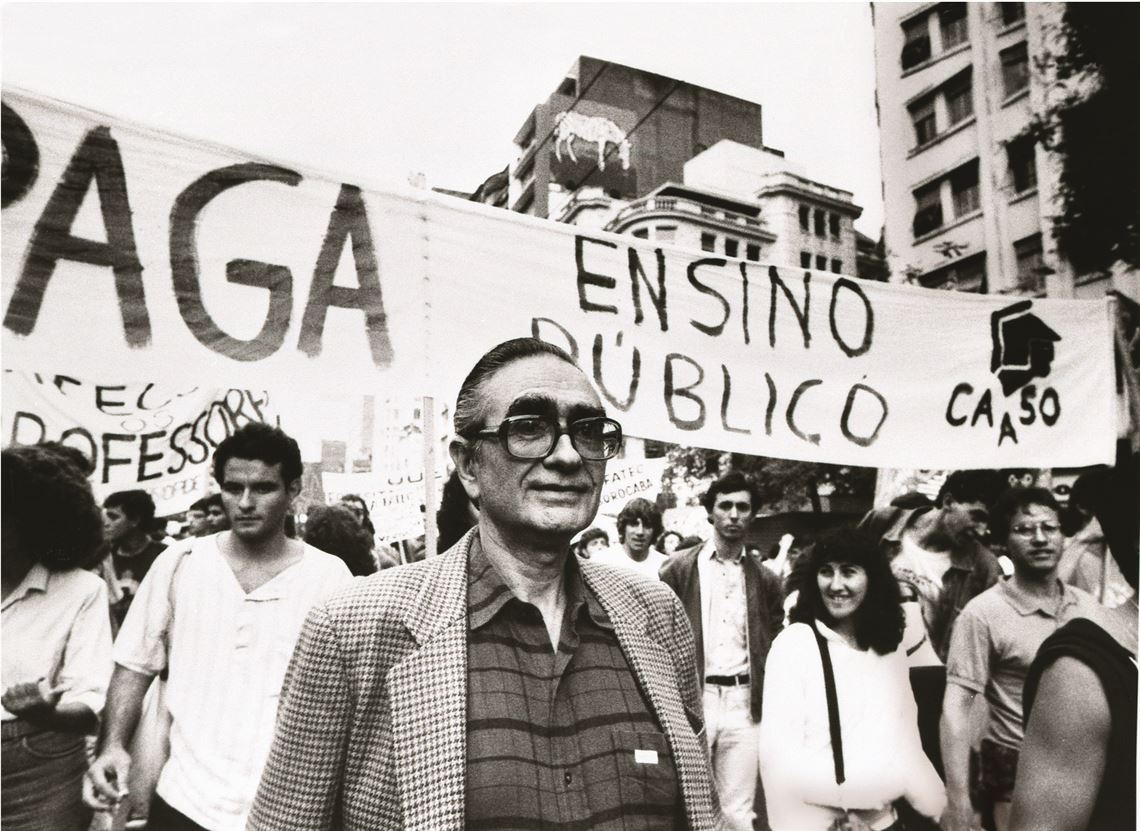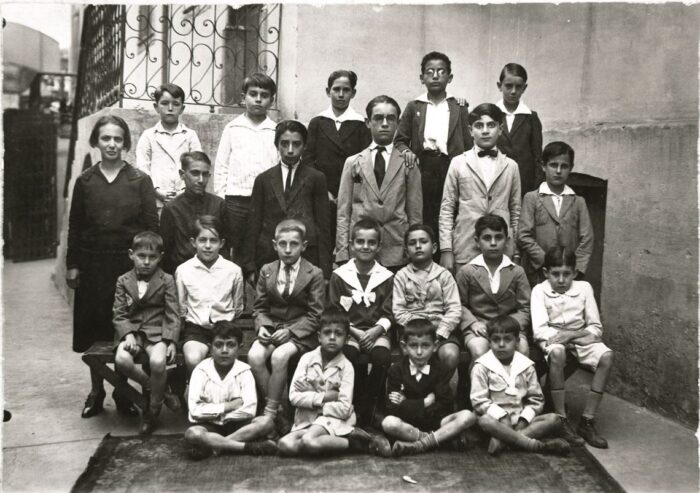“We do not work for European or North American sociologists, except for indirectly and as a contingency of the very nature of scientific work. The true meaning of our contributions to sociology, however modest or grand, can only be achieved when associated with the need to create a new approach to investigating our social reality, digestible and constructive for future generations of Brazilian specialists, who should not inherit the same flaws and limitations as we did.” So wrote sociologist Florestan Fernandes, in his 1956 article “A Sociologia no Brasil” [Sociology in Brazil]. One of the most significant Brazilian intellectuals of all time, Fernandes died in 1995; July 22 marks the 100th anniversary of his birth.
“Florestan refused to bow to foreign authors and constantly questioned what it meant to be a sociologist in a country on the periphery of capitalism,” shares sociologist Elide Rugai Bastos, from the Institute of Philosophy and Human Sciences at the University of Campinas (IFCH-UNICAMP). A specialist in Fernandes’s work, Bastos is currently putting the finishing touches on a book about the writings of the São Paulo–based intellectual; its working title is A Terceira Margem da Sociologia (The third margin of sociology)—a reference to the short story The Third Bank of the River, by author Guimarães Rosa (1908–1967). “Florestan looked for different answers than those proposed by core countries. Contemporary sociology in peripheral countries is critical of Eurocentrism, but at the time—during the 1940s and 1950s—it was a bold and original view.”
One of Fernandes’s most renowned disciples, former President Fernando Henrique Cardoso, agrees. “Florestan Fernandes knew the distinction between what [Argentine economist Raúl] Prebisch called core and periphery. He focused on the periphery but knew he must consider the system as a whole, meaning he was profoundly serious in his theoretical views. He was never a small-time sociologist, but rather one without adjectives other than those required by science: he was rigorous in his analyses,” declared Cardoso by email to Pesquisa FAPESP. “Throughout my academic career, he taught me that, without a concept or theory, one cannot understand the facts of life. However, having a concept does not exempt the scientist from ‘diving’ into the concrete, the daily life, the relationships between people.”
A Childhood in Poverty
Florestan Fernandes’s entrance to the academic world was rather unique. Raised by his mother, a Portuguese immigrant who worked as a housekeeper, he began working as a shoeshine and tailor’s apprentice while still a child. At 17, as a waiter at Bar Bidu in downtown São Paulo, he was encouraged by the intellectuals who frequented the establishment to further his studies. He proceeded to enroll in Madureza, a secondary school equivalency program for young adults and adults at the time, which he finished in 1941. That same year he was admitted into the social sciences program at the School of Philosophy, Sciences, and Languages and Literature of the University of São Paulo (FFCL-USP). Four years later, he became assistant professor to Fernando de Azevedo (1894–1974), chair of Sociology II at the institution, alongside sociologist and future literary critic Antonio Candido (1918–2017), with whom he remained close for five decades. Their friendship inspired the play Vicente and Antonio, by Oswaldo Mendes, which journalist Florestan Fernandes Júnior, son of the sociologist, intends to stage later this year. “Vicente was how my father used to be called by my grandmother’s employers. They thought the name Florestan—a character from Beethoven’s [1770–1827] opera Fidelio—did not suit the son of a housekeeper,” shares the journalist.
“In Brazil, the first sociology and social sciences programs were established in 1933,” notes Jacob Lima, president of the Brazilian Society of Sociology. “Florestan Fernandes’s greatest legacy was his concern for academic discipline in sociology research and training.” Sociologist Maria Arminda do Nascimento Arruda, director of the USP School of Philosophy, Sciences, and Languages and Literature (FFLCH), believes that Florestan Fernandes is required reading when it comes to understanding the development of social sciences, not only at USP, but in Brazil. “In addition to treating sociology as a science, I believe his greatest innovation was his effort to understand Brazil from the perspective of the people, those excluded from the modernization of Brazil,” states Arruda, a student of his work.
According to Arruda, this is illustrated by Fernandes’s 1975 book A revolução burguesa no Brasil (The bourgeois revolution in Brazil), which has just been rereleased as part of the Florestan Fernandes Collection, published by Contracorrente. “In this era of democracy crisis and obscurantism, it is essential to make his work relevant once again,” defends editor Rafael Valim, who developed the collection along with Florestan Fernandes Júnior. “In this book, Florestan analyzes Brazil beginning in the colonial period,” notes Bernardo Ricupero, a professor at the Department of Political Science at FFLCH and coordinator of the collection. “From the concept of autocracy, he shows that, unlike in France, in Brazil the bourgeois revolution did not break paradigms,” he adds. “On the contrary: the bourgeoisie aligned itself with old oligarchy leaders and seized power to defend private interests. According to the book, this continues to be the case in the country regardless of political regime.”

